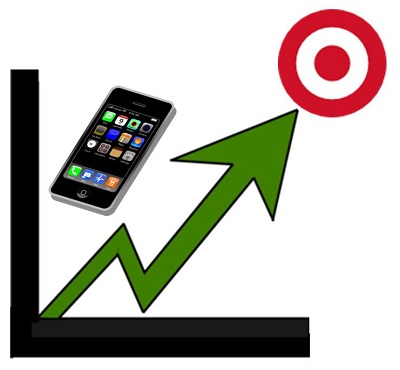The company has make a significant push to try to carve out a greater slice of the mcommerce pie.
InMobi is betting on the idea that its seamless mobile commerce experience will be popular enough that it will start to make a bigger name for itself within this market space, despite stiff competition from industry giants such as Google and Facebook.
The company develops and places ads for some of the largest brands in the world.
Among the brands for which ads are being created and placed by InMobi are Unilever and Samsung Electronics. These ads aren’t placed on the regular internet, but are instead positioned on mobile apps and sites so that they will be found directly in front of the consumer no matter where they are or when it is. Now, InMobi has decided to expand its presence by stepping into the mobile commerce enabling sphere in a way that is somewhat similar to what Just Dial Ltd. has been doing for a number of businesses.
Companies are starting to realize that mobile commerce is no longer an optional online feature.
As a growing number of shoppers worldwide start turning to their smartphones to purchase products, it is also becoming increasingly obvious to companies and brands that mcommerce is a necessity if they want to be able to stay ahead of the competition.
InMobi is now working with brick and mortar retailers, ecommerce companies such as eBay, hotels, and other types of businesses in order to help them to be able to make their place in the rapidly growing and evolving e-commerce world that exist on the smaller screens of smartphones and tablets.
Aside from that strategy, the company also generates revenues by helping to drive the downloads of participating mobile apps. According to Piyush Shah, the vice president of products at InMobi, “It’s the right time for us to double down on the mobile commerce space given the pace at which commerce is shifting to mobile.”
Within the next three to four years, Shah stated that the mobile commerce portion of the business will be making up about a third of InMobi’s sales.
At the same time, surfing the web over smartphones has started to decline.
Recent news about the use of mobile apps from Furry, an analytics provider, has shown that the usage of native applications over smartphones is continuing to rise, but it is doing so at the expense of the use of the web.
The data from the company showed users spend an average of 2 hours and 42 minutes on their devices each day.
This usage, which was accurate as of March 2014, represents a notable growth, as the same figure a year beforehand had been 2 hours and 38 minutes. Of that time, the usage of mobile apps represents 2 hours and 19 minutes. Equally, the amount of time spent surfing the mobile web has dropped in the United States, from having been 20 percent of the time spent on those devices in 2013 to only 14 percent, this year. This means that only 22 minutes per day are being spent on surfing.
This could suggest that the influence and attraction of mobile apps is growing among consumers.
 According to Simon Khalaf, the CEO of Flurry, these changes suggest that the mobile browser is only one of a large number of other applications on a mobile device. He explained that a browser on a smartphone is “a single application swimming in a sea of apps.” The data that Flurry gathered in order to make this conclusion was from its network that represents more than 450,000 smartphone applications. Those apps are installed on more than 1.3 billion devices located around the globe.
According to Simon Khalaf, the CEO of Flurry, these changes suggest that the mobile browser is only one of a large number of other applications on a mobile device. He explained that a browser on a smartphone is “a single application swimming in a sea of apps.” The data that Flurry gathered in order to make this conclusion was from its network that represents more than 450,000 smartphone applications. Those apps are installed on more than 1.3 billion devices located around the globe.
At the same time, it used comScore for the data regarding the use of apps and browsers, and it used NetMarketShare in order to determine the distribution of the usage of mobile browsers. This means that as interesting as the claims from Flurry may be, it is combining data from several sources which each have their own methodologies. While this does not indicate that the data is necessarily inaccurate, there is no way to verify the accuracy of what it suggests, either.
The report also looked into the types of mobile apps that were the most popular and determined that gaming is still the category with the greatest usage, representing 32 percent of the time spent on smartphones. Facebook was in second place at 17 percent.


 According to Simon Khalaf, the CEO of Flurry, these changes suggest that the mobile browser is only one of a large number of other applications on a mobile device. He explained that a browser on a smartphone is “a single application swimming in a sea of apps.” The data that Flurry gathered in order to make this conclusion was from its network that represents more than 450,000 smartphone applications. Those apps are installed on more than 1.3 billion devices located around the globe.
According to Simon Khalaf, the CEO of Flurry, these changes suggest that the mobile browser is only one of a large number of other applications on a mobile device. He explained that a browser on a smartphone is “a single application swimming in a sea of apps.” The data that Flurry gathered in order to make this conclusion was from its network that represents more than 450,000 smartphone applications. Those apps are installed on more than 1.3 billion devices located around the globe.